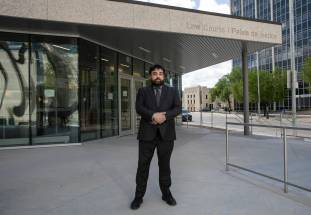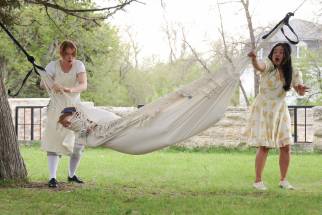Seeking balance on short-term rental regulation
Read this article for free:
or
Already have an account? Log in here »
To continue reading, please subscribe:
Monthly Digital Subscription
$19 $0 for the first 4 weeks*
- Enjoy unlimited reading on winnipegfreepress.com
- Read the E-Edition, our digital replica newspaper
- Access News Break, our award-winning app
- Play interactive puzzles
*No charge for four weeks then billed as $19 plus GST every four weeks. Offer only available to new and qualified returning subscribers. Cancel any time.
Read unlimited articles for free today:
or
Already have an account? Log in here »
Hey there, time traveller!
This article was published 31/05/2022 (940 days ago), so information in it may no longer be current.
An advertising slogan adopted by Airbnb is “belong anywhere.” Some people in Winnipeg suggest with considerable fervor that Airbnb doesn’t belong anywhere near them.
City council is being pushed to regulate the short-term property rental business, of which Airbnb is the most prominent platform. Councillors got an earful during presentations last week and quickly learned that when it comes to this issue, the hospitality industry can get downright inhospitable.
Submissions described how houses which rent space for up to 12 adults per day — dubbed “ghost hotels” because the property owners are nowhere to be seen — operate in Winnipeg residential areas, frustrating local residents with extra traffic, noise, excessive partying, drug dealing and sex-trade transactions.
This unsavoury image is typically countered by the owners of short-term rentals, who insist it’s unfair to use a few bad examples to sully the whole industry as nothing more than dens of debauchery and lawlessness.
It’s understandable that the proprietors of such properties view the issue through the lens of their personal economic interests and insist existing laws are sufficient to stamp out criminal activities. But, with all due respect for their entrepreneurial get-up-and-go, they’re wrong if they suggest there’s no need for increased regulation. Most other cities have found a need to control the short-term rental industry, and it’s time for Winnipeg to catch up.
Such places in Winnipeg aren’t currently licensed, and aren’t subject to the fire and safety checks of other hospitality businesses such as hotels. They should be. Also, they aren’t currently required to pay a business tax like traditional hotels. They should, and the taxes they pay should help pay for the inspections of the premises.
Some interested parties would have council go even further. The Manitoba Hotel Association is on the record as proposing short-term rental owners only be allowed to rent sections of their primary residences. This requirement would revert to the original purpose of Airbnb when it began in 2007, that people would rent out a room or suite within their personal living space.
The concept has evolved, however. Some dealers in real estate have found it lucrative to purchase several condos or houses, never intending to live in them personally but instead renting them out to a succession of short-term lodgers via online platforms such as Airbnb.
While a regulation requiring owners to live on the premises would likely help stabilize the behaviour of renters, some councillors have recommended requirements that are even more stringent, such as requiring owners of short-term rental properties to inform neighbours about upcoming rentals and also provide immediate neighbours with a schedule for each new arrival.
These measures would seem excessive, and possibly violate privacy rights of both the property owners and the incoming renters.

It’s too late to hope council takes action before summer tourists start booking rooms. Council delayed its vote on the issue last Thursday, and directed it back to the property and development committee for further discussion.
That discussion should include a survey of other cities: some places have chosen the extreme of an outright ban on short-term rentals, while others have chosen the other extreme of an unrestricted, Wild West-style absence of rules. Most have forged a middle ground.
For Winnipeg, the middle ground should, at the least, include mandatory licensing, and a tax and safety inspections similar to those required of hotels.
Visitors to this city who choose accommodation via sites such as Airbnb deserve assurance that the places are safe and reputable. And what’s good for the guests is also good for the long-term reputation of Winnipeg’s short-term rental industry.





